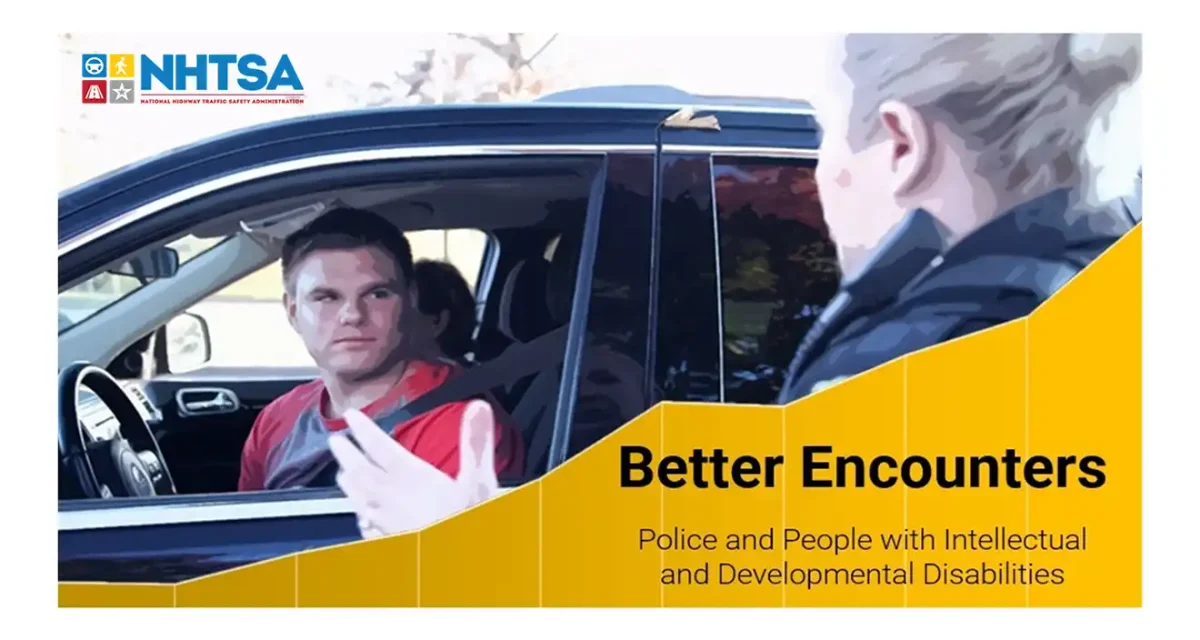
Better Encounters: Police and People with Intellectual and Developmental Disabilities, an eLearning course, enhances the capacity of law enforcement to identify and effectively interact with community members who may have intellectual and developmental disabilities (I/DD) during traffic stops and other exchanges in the community.
The significant and rising prevalence of I/DD in the population makes this course especially pertinent for law enforcement and other safety practitioners with a focus on traffic safety. Better Encounters presents the rationale for learning more about people with I/DD, including the growing rates of specific disabilities and the likely contexts for interactions with police during traffic-related contact. The course also provides the means of identifying behaviors that are characteristic of those with I/DD, developing strategies for having positive interactions, and improving situational awareness and decision-making. Ultimately, the greater the awareness law enforcement officers have of the conditions and people they are likely to encounter, the better equipped they are to effectively manage a diverse range of situations.
Learning Objectives:
- Define the relevant I/DD terms including intellectual and developmental disability, developmental disability, intellectual disability, autism spectrum disorder, Americans with Disabilities Act (ADA), and community policing
- Identify relevant legal obligations including those created by the ADA
- Understand the prevalence of I/DD in the population
- Recognize specific rationales for training to improve interactions between police and people with I/DD including self-identified need
- Discern the most likely contexts for encounters between police and people with I/DD
- Distinguish behaviors that indicate possible I/DD
- Identify indicators that a person with I/DD may also have a mental health condition
- Recognize the function of appropriate communications in improving encounters with people who may have I/DD
- Explore strategies for managing stress during encounters
- Discern a decision-making framework to improve interactions with an expanding range of people
Self-Paced Online Course
3 learning hours
Cooperative Partners:
This tuition-free online training was developed in partnership with the National Highway Traffic Safety Administration (NHTSA) and was supported by cooperative agreement 2020-CK-WXK-037 by the U.S. Department of Justice, Office of Community Oriented Policing Services (COPS).
